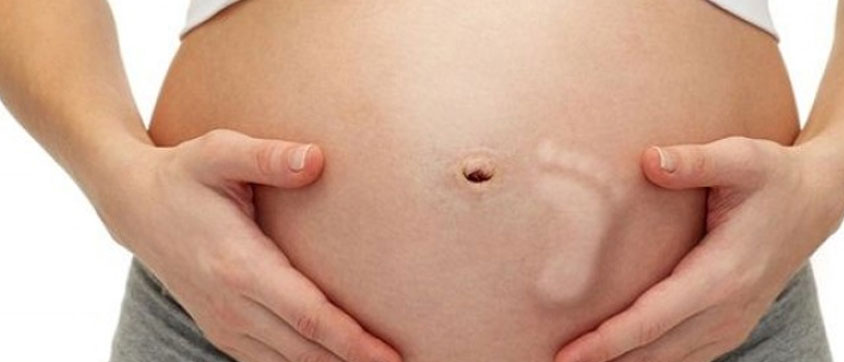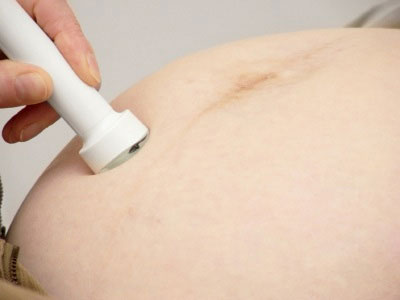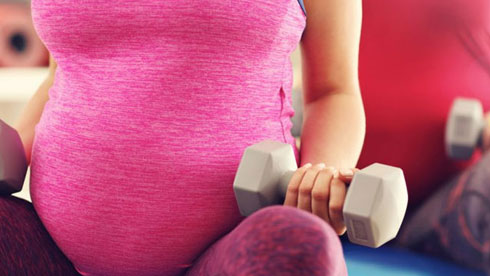Feeling the movements of the baby is one of the wonderful experiences of pregnancy. Foetal movements are also one of the indicators of health and wellbeing of the baby. Discussed below are some facts on foetal movements during the third trimester of pregnancy.As you reach towards the end of your pregnancy, your baby might move differently. There is a significant difference in the foetal movements in the third trimester as compared to the other two. You may feel that the baby is kicking lesser and rolling about more.
Monitoring
foetal movements is necessary to ensure that the baby is growing and developing properly. Any abnormal change in the foetal movements in
third trimester of your
pregnancy is a warning sign and should not be ignored.
Changes in Foetal Movements in Third Trimester
Movement is a crucial marker to prove that the baby is developing properly and doing well. As you progress, your foetus grows larger too and the type of movements can differ based on the trimester you are in. In the third trimester, your baby is too big to kick or roll, but may roll around or stick an arm or leg out. It is important to keep track of these movements as abrupt change in baby’s regular movements can indicate an underlying serious health issue. All babies are different, and so is one pregnancy different from another. Hence, the amount of foetal movement in the third trimester is bound to be different as well. By paying close attention to these movements and keeping a record, you can make sure that the baby is growing appropriately.
How to Keep Track of Your Foetal Movements?
You can begin by eating a meal and lying down on your left side to notice foetal movements. As your uterus gets more crowded in your last trimester, you may feel that your baby is moving with a lesser intensity. If your baby is less mobile than usual, you can do a "kick count" to keep record of the number of movements your baby makes in an hour. Although, there is no optimal kicking count, there is a baseline of 10 or more movements in two hours that is considered healthy. If your foetus does not move 10 times in three hours or more or you feel uneasy about the decreased foetal movements, you should seek immediate medical care.
When to Call Your Doctor?
No activity or sudden increase in activity in the third trimester of your pregnancy is a cause of alarm and should be immediately checked with your midwife or obstetrician. Contact your medical service provider immediately if:
- You feel no movement throughout the day
- Less than 10 movements in 2-3 hours
- Sudden increase or decline in the activity of the foetus
- Different foetal movement than what you experienced before
Your obstetrician will order a contraction stress test, non-stress test or a full biophysical profile scan to check the progress of the baby.
Possible Causes of Lack of Foetal Movements in Third Trimester
There are few known causes that can lead to a
decrease in the foetal movements in third trimester but if you experience signs other than these, it is important to seek medical help:
- The foetus may be taking a nap for a few hours. Drinking or eating something enriched in sugar can help wake up the foetus from slumber and you can feel your baby move normally.
- In the last trimester, the baby has fully grown giving it less space to be mobile. Instead of your baby’s punching, moving or kicking, you can experience stretches or rolls in varying degrees. Babies become less active once their heads have enlarged in the pelvis.
Foetuses are quite inactive in the last trimester of the pregnancy. If you experience decreased foetal movements it does not necessarily mean that your baby’s health might be in danger but abrupt or persistent inactivity can also mean that you are experiencing foetal distress. It is important to acquire timely intervention to obtain proper medical care and support. Gaining reassurance from medical professionals or your obstetrician is always important to ensure that you and your baby are healthy.
How to track foetal movements? What changes can be experienced in baby’s movements during third trimester of pregnancy? What can be the causes behind lack of foetal movements? Discuss here. 






























